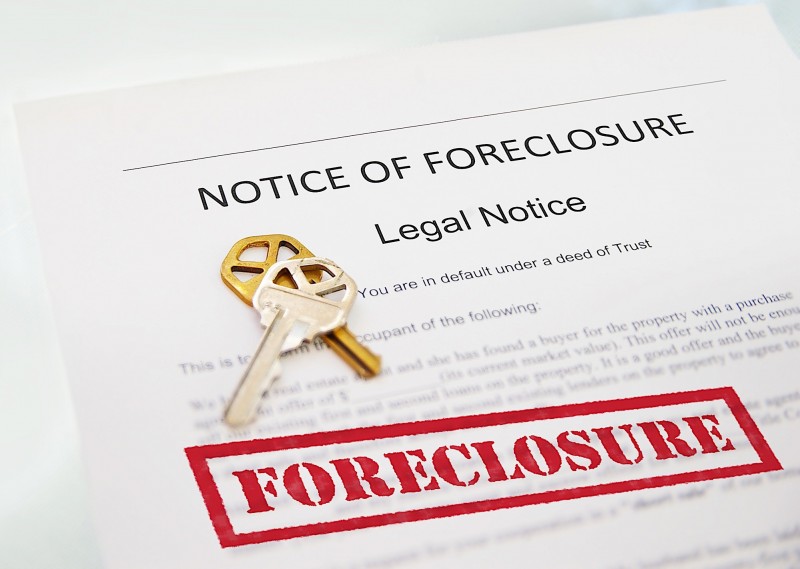Looking for a housing deal raises many questions, especially when faced with unfamiliar terminology. For instance, you may ask, “What does pre-foreclosure mean?” You know a potential deal awaits you on a foreclosed home but pre-foreclosure?
If you are a homeowner experiencing pre-foreclosure, the stress of imminent foreclosure may start you running in circles. Or, the doom and gloom of no-way-out thinking may paralyze you. Either way, solutions exist to remedy your situation.
Keep reading…
What Does Pre-Foreclosure Mean?
A homeowner signs an agreement with the lender promising to pay monthly mortgage payments. These payments cover both the principal and the interest on the home. Failing to pay for three months means the homeowner is in default. A notice of default or lis pendens gets filed against the homeowner by the lender and is made into a public record.
If a property owner continues in nonpayment, the lender assumes the right to foreclose. The house is sold as collateral to pay off the debt. On average, a foreclosure takes 625 days to complete. Repossession takes place at the end of this time, not during. The homeowner retains the property through the pre-foreclosure and foreclosure stages until the bank sells it at auction.
As the prefix “pre” indicates, pre-foreclosure includes properties in the stage right before foreclosure or repossession. Since the property owner failed to pay the mortgage obligation, the lender informs him or her of the intent to pursue legal action through the notice of default. The pre-foreclosure stage ends when the debt is righted, or the property is sold.
Typically, the pre-foreclosure stage lasts from three to ten months. During this time, the homeowner continues to live in the property and retains the right to make late payments (which ends pre-foreclosure) or sell the property. Selling for less than this value leaves the property owner indebted to the lender unless they agree otherwise (as in a short sale).
What Action Steps Can I Take in the Pre-Foreclosure Stage?
Finances cause stress in homes. The inability to make house payments causes stress, worry, and poor decision-making — if not indecision. In short, pre-foreclosure is overwhelming for homeowners. However, property owners have options and actions to take when faced with imminent foreclosure. And buyers offer a solution.
As a Homeowner
Communication with a lender benefits homeowners struggling to make payments. Banks do not want houses. Many willingly work with property owners when legitimate hardship hits. When a homeowner misses payments in pre-foreclosure, he or she has three options:
- Talk with the lender.
- Pay off the debt.
- Sell the property.
Without taking action in one of these ways, the property proceeds to foreclosure.
Selling a home close to foreclosure becomes more complicated. Therefore, selling early in the pre-foreclosure stage is advisable if you choose to sell. A short sale, a real estate agent specializing in distressed properties, or an accredited home buyer helps speed the sale of your home before you lose it to foreclosure.
While selling a home in the pre-foreclosure stage comes with complications, covering your debt to a lender avoids the consequences of foreclosure. Some options like a short sale may still impact your credit but not to the extent of repossession. Losing a property to foreclosure drops credit scores up to 200 points and puts off home-buying power for seven years.
As a Buyer
For buyers looking for a deal, pre-foreclosure may be the way to go. Some property owners want to cover their debt to lenders quickly giving you the advantage of below-market values. Plus, the buyer retains the right to an inspection. (Beware: Not all pre-foreclosure homeowners are so eager. Some still want top dollar.)
While you may benefit from a homeowner incentive to off-load a company, more complicated short sales and near-foreclosure complexities require knowledge and patience. Short sales must be approved by lenders and are slow to close. Property liens and unpaid taxes accompany some properties. And unkempt houses require repair, renovation, and associated costs.
Buyers looking at pre-foreclosure properties need to be cautious. Home inspections are advisable. And, you negotiate directly with listing agents and home sellers who may be less willing to report issues, the house’s worth, or other costs that fall within the buyer’s responsibility.
Many times pre-foreclosure properties are not on the market. Homeowners may be working to pay off mortgage debt or are paralyzed in their circumstances. This means research for the buyer. Real estate marketplaces like Zillow, local newspapers, public records, and marketing yourself online help you find pre-foreclosure properties.
(Read the simple article on Zillow titled, Buying a Pre-Forclosure Property for finding such a buy.)
Pre-Foreclosure Sounds Complicated: What Else Can I Do?
As a homeowner, the idea of selling during pre-foreclosure may sound complicated. And, let me be honest, can be. However, I am here to alleviate your stress. (Check out a testimonial here.) Working with accredited buyers gets you results without the overwhelming paperwork, closing costs, or real estate commissions.
Visit me at Ben Buys Indy Houses for more information on how I work to benefit you.



